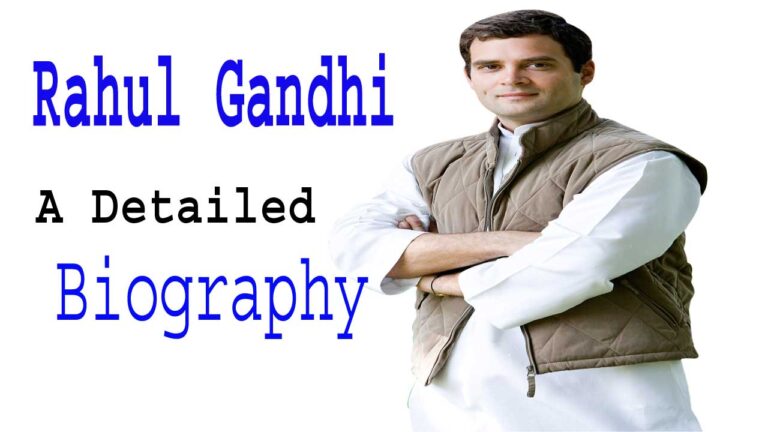Rahul Gandhi, a prominent leader of India’s National Congress Party, has had a significant impact on the country’s politics. This article delves into his biography, education, and political journey, making it accessible and engaging for readers.
Early Life and Education
Rahul Gandhi, one of India’s most influential political figures, was born on June 19, 1970, in New Delhi. He comes from a family with a rich political legacy—his father, Rajiv Gandhi, was a former Prime Minister of India; his mother, Sonia Gandhi, served as the President of the Indian National Congress; and both his grandmother, Indira Gandhi, and great-grandfather, Jawaharlal Nehru, were Prime Ministers of India.
Rahul began his education at Modern School in Delhi, followed by The Doon School in Dehradun. For higher education, he attended Harrow School in the UK and later pursued studies at Harvard University. He then transferred to Rollins College, where he completed his undergraduate degree, and subsequently earned a Master’s degree in Development Economics from Trinity College, Cambridge.
Political Career
Rahul Gandhi officially entered the political arena in 2004, contesting the Amethi seat in Uttar Pradesh. He was elected as a Member of Parliament and gradually rose through the ranks of the Congress Party. In 2013, he was appointed Vice President of the Congress Party and later became the party’s President. Despite facing challenges during the 2019 Lok Sabha elections, Rahul Gandhi has continued his efforts to rebuild and strengthen the Congress Party.
Personal Life
Rahul Gandhi is known for keeping his personal life private. He is often described as a humble and down-to-earth individual. His activism on social issues and commitment to democracy, social justice, and the upliftment of the common people set him apart from other political leaders.
Political Philosophy and Vision
Rahul Gandhi’s political philosophy is deeply rooted in the principles of democracy, social justice, and equality. He has consistently focused on the rights and welfare of marginalized communities. His speeches and actions reflect a commitment to inclusive growth, where every citizen has an equal opportunity to participate in India’s development.
He has been vocal about the need for educational reform, addressing farmers’ issues, and tackling unemployment. Rahul Gandhi’s vision for India is one where development is not just for the few but for all, ensuring that the benefits of progress reach every corner of the country.
Challenges and Criticism
Rahul Gandhi has faced numerous challenges in his political career. The Congress Party has experienced several electoral defeats under his leadership, leading to criticism from both opponents and some within his party. However, he has used these challenges as opportunities for personal growth and continues to work towards the party’s revival.
Global Influence and Activism
Rahul Gandhi’s influence extends beyond India’s borders. He has represented India at various international forums and conferences, advocating for the country’s interests on the global stage. His relationships with world leaders and international organizations have played a crucial role in shaping India’s foreign policy.
Rahul Gandhi has also been active in global discussions on democracy, human rights, and environmental protection, positioning himself not just as a national leader but as a global figure.
Future Prospects
Rahul Gandhi’s political journey is far from over. With a long road ahead, he remains a key figure in shaping India’s future. Whether or not the Congress Party returns to power under his leadership, his vision and strategies will likely continue to influence India’s political landscape.

Nice post. I learn something totally new and challenging on sites I stumbleupon every day.
It’s always useful to read through articles from other writers and use something from other websites.